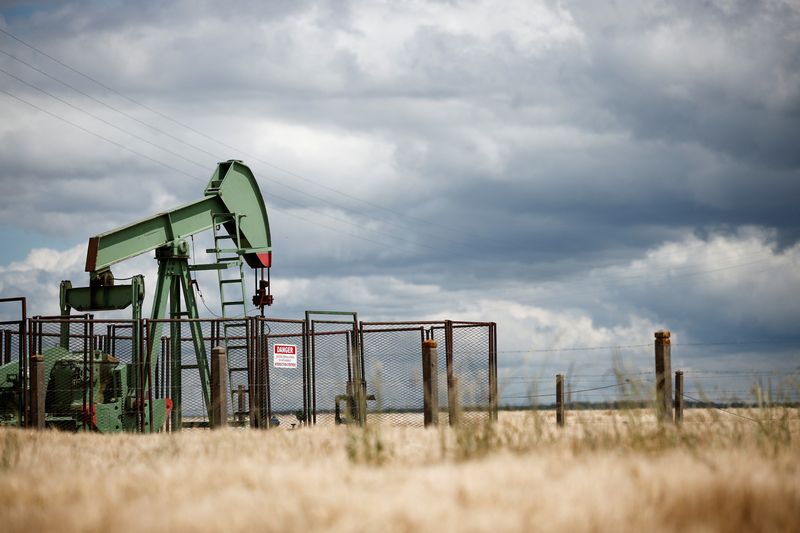US stock futures flat after Wall St drops on Trump tariffs, soft jobs data
Investing.com -- OPEC has slid back into the driver’s seat of global oil markets after the oil cartel’s aggressive output hikes put the squeeze on U.S. shale growth. But with the market now bracing for oversupply through mid-2026, the cartel must now balance its appetite for market share without triggering a price rout that could backfire on its own members.
“OPEC+ has shifted to market share over price support. Given the impact of this switch (plus tariffs), oil prices have fallen to the low $60s/bbl, and E&Ps have trimmed capex and D&C plans,” Wells Fargo (NYSE:WFC) analysts said in a recen note, underscoring the consequences of OPEC’s more aggressive production strategy.
With U.S. shale output now more price-sensitive and production forecasts trimmed for 2025 though 2027, OPEC+ has “slid into the driver’s seat,” the analysts said.
While U.S shale isn’t finished, its growth has plateaued without higher prices, the analysts added, leaving OPEC+ with more leverage to steer the market. The maturity of US shale means breakevens have stabilized around $50–55/bbl, and further cost reductions look unlikely without a major technological breakthrough or a new upcycle.
Despite the potential for OPEC+ to slow the pace of output hikes, recent actions suggest otherwise. Wells Fargo has cut its oil price deck, now expecting crude to remain in the low- to mid-$50s per barrel through mid-2026. “We expect crude oil prices to continue falling and then remain in the low- to mid-$50/bbl range through mid-2026,” the analysts said, adding that only a significant overshoot—where oil falls below $50—would likely force OPEC+ to reconsider.
The firm expects a strong price recovery by the second half of 2027, with prices rebounding above $80/bbl, assuming no global recession and steady demand growth.
Saudi Arabia remains central to OPEC’s power, frequently acting as the “central bank” of oil by swinging production up or down by as much as 2 million barrels per day--within 12-month periods multiple times since 2000--to stabilize markets. “Saudi Arabia has walked the talk when it comes to global oil market equilibrium,” the analysts saidm and its commitment to avoiding a price collapse is key to the long-term outlook.
OPEC’s spare capacity, meanwhile, is sufficient to suppress prices further if needed, with the core group able to add up to 2.2 million barrels per day by simply “turning on the taps.” The risk of oversupply, however, is real, especially as discipline within OPEC+ ebbs and non-OPEC members produce at capacity.
"While the global S/D balance in H1’25 has been tighter than we expected, this is mostly due to OPEC+’s production discipline and restraint," Wells Fargo said. "With that restraint and discipline ebbing, those oversupply risks appear more likely from mid-2025 through mid-2026 at least."
